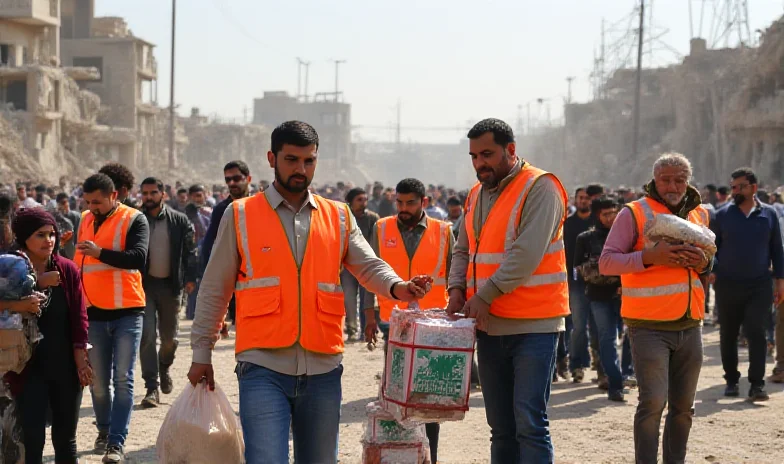The United States Agency for International Development (USAID) is facing renewed scrutiny on multiple fronts, from the delivery of aid to Gaza to past decisions regarding contracts and negotiations. Recent reports indicate that millions of dollars earmarked for humanitarian assistance in Gaza have failed to arrive, jeopardizing the progress made during the recent Israel-Hamas ceasefire.

Gaza Aid in Jeopardy
The cutbacks in funding are particularly concerning as they threaten to halt the modest gains achieved by aid workers in addressing the dire humanitarian situation in Gaza. The lack of resources could undermine efforts to provide essential services and support to the population, particularly vulnerable groups.
"The situation in Gaza is already precarious, and any reduction in aid will have devastating consequences," said one aid worker familiar with the situation.
Meanwhile, an NPR interview with Andrew Natsios, former head of USAID under President George W. Bush, shed light on the agency's evolution and challenges over time. The discussion touched upon the perceived "dismantling" of the agency and the broader implications for international aid efforts.

Peanut Paste and Policy Reversals
In a separate development, a factory in Georgia has resumed production of lifesaving peanut paste for malnourished children overseas. This occurred after the Trump administration reversed its earlier decision to cancel a USAID contract. The resumption of production is expected to provide much-needed nutritional support to vulnerable children in various countries.
This policy reversal highlights the complexities and sometimes contradictory nature of government decision-making when it comes to international aid.
Negotiating with Hamas?
Adding another layer of complexity, the Trump administration’s decision to negotiate directly with Hamas has raised eyebrows. This move seemingly contradicts the long-standing U.S. policy of not engaging with groups designated as terrorist organizations. NPR's report featuring Brian Katulis, senior fellow at the Middle East Institute, explored the rationale behind this shift, questioning whether it represents a strategic departure or a pragmatic response to the realities on the ground.

These various developments underscore the challenges and complexities facing USAID as it navigates a changing geopolitical landscape and shifting policy priorities.
